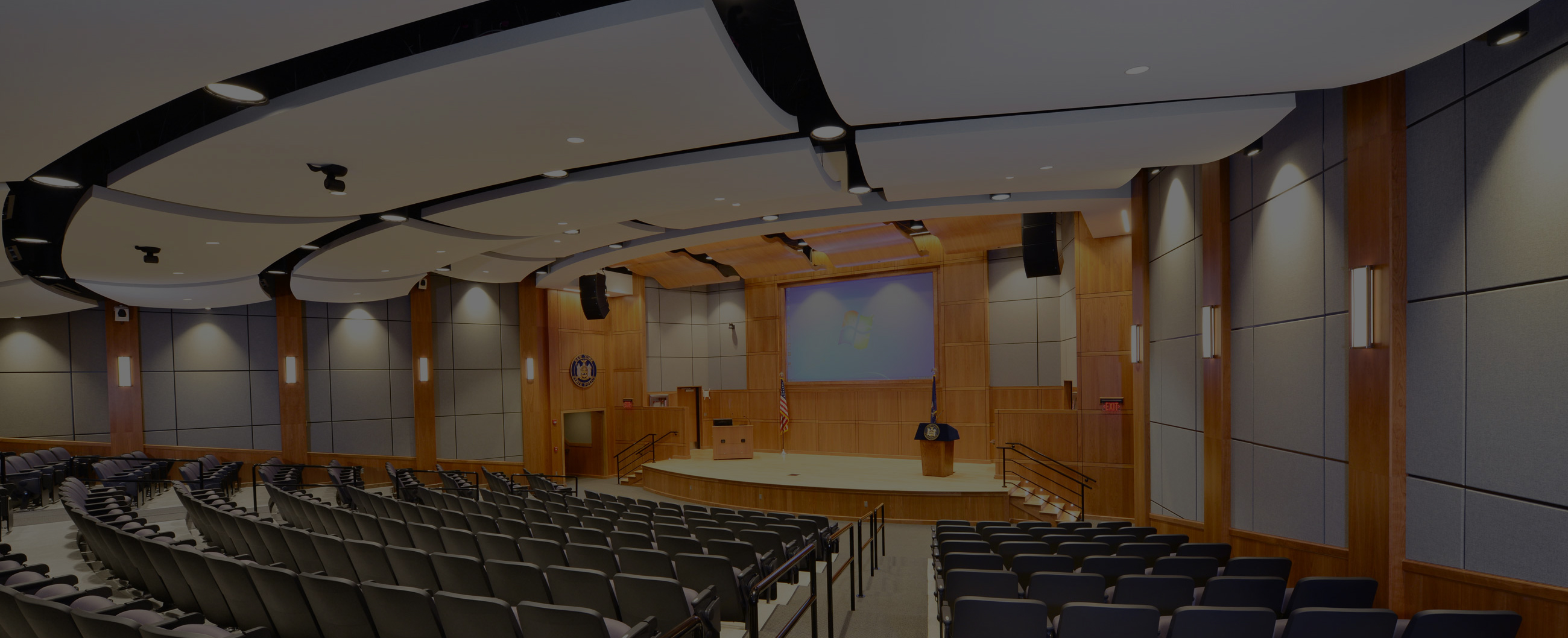
Felt Acoustic Panels for Offices, Gyms & Nightclubs: Function + Aesthetics
High-STC Acoustic Walls: Meeting European Noise Control Standards
What Are High-STC Acoustic Walls?
High-STC acoustic walls are engineered partitions designed to achieve superior noise isolation, meeting or exceeding EN and ISO standards widely adopted in Europe for residential, hospitality, healthcare, and commercial buildings.
These walls prevent airborne sound transmission (speech, TV, traffic noise) between rooms or from external environments, providing privacy, comfort, and compliance with European building codes.
European Acoustic Requirements (EN/ISO Standards)
EN ISO 717-1: Evaluates Sound Reduction Index (Rw) for walls.
Rw (European Equivalent of STC):
Residential (Apartments): Rw 50+
Hotels & Hospitality: Rw 52–55+ (guestroom privacy).
Healthcare & Offices: Rw 48–50 (speech confidentiality).
Studios & Auditoriums: Rw 60+ (high isolation for performance spaces).
Core Materials for High-STC Acoustic Walls
1
SoundBlanket® MLV (Mass Loaded Vinyl)
STC / Rw Rating: 27–40 (2–10 mm thickness)
Size: 32 x 4 ft (10 m x 1.2 m) rolls
Function: Adds mass and flexibility to walls, blocking airborne noise effectively.
Compliance: ASTM/EN/ISO Class A fire-rated
2
BassBloc® (Low-Frequency Vibration Control)
NRC: 0.85 (20 mm) | 0.95 (40 mm)
Use: Absorbs low-frequency hums from mechanical systems or music, improving perceived sound isolation in high-STC walls.
3
Double Stud or Resilient Channel Systems
Decouples wall surfaces to reduce vibration transfer and increase Rw/STC by 8–12 points.
4
Acoustic Finishes (NRC-rated)
Echsorbix® Felt Panels (NRC 0.90): Enhances internal acoustic comfort while complementing interiors.
Fabric-Wrapped Panels (NRC 0.90): Ideal for meeting rooms, hotels, and healthcare spaces.
Wall Assembly for High-STC Performance
A typical European high-STC wall build-up:
Layer 1: SoundBlanket® MLV
4 mm, STC 32 / Rw 32 for noise blocking.
Layer 2: BassBloc®
20 mm, NRC 0.85 for vibration damping.
Layer 3: Drywall or Cement Boards
Double-layer mass for additional isolation.
Optional: Decoupling
Resilient channels or double studs for extra isolation.
Result: Composite STC 55+ / Rw 55+, compliant with EN ISO 717-1 for hotels and luxury residences.
Applications of High-STC Walls
Luxury Apartments & Villas
Ensures privacy in shared walls between units.
Hotels & Hospitality
Isolates guestrooms from corridors for a premium guest experience.
Corporate Offices & Boardrooms
Provides speech confidentiality in high-level discussions.
Healthcare Facilities
Reduces cross-room noise for better patient comfort.
Studios & Performance Spaces
Delivers maximum isolation for recording or live events.
Case Study: Luxury Hotel in Paris
Challenge:
Meeting EN ISO Rw 55 for guestroom partitions adjacent to busy city streets.
Result:
Achieved Rw 56+, surpassing required European standards and delivering 5-star acoustic comfort.
Solution:
Installed SoundBlanket® MLV (4 mm) within walls.
Added BassBloc® (20 mm) behind gypsum board for vibration control.
Finished with fabric-wrapped acoustic panels (NRC 0.90) in guestrooms.
Additional Design Considerations
Doors
Use acoustic doors with STC 35+ and EPDM perimeter seals.
Floors & Ceilings
Complement walls with floating floors and suspended ceilings for full enclosure isolation.
Penetrations
Seal all electrical, HVAC, and plumbing cut-outs with acoustic putty pads and gaskets.
FAQs
A: They are equivalent metrics: STC is used in the US, while Rw is standardized in Europe per EN ISO 717-1.
A: Yes. MLV and BassBloc® layers can be added to existing walls during renovations without structural changes.
A: Around 150–200 mm, depending on decoupling, insulation, and drywall layers.
Conclusion: Meeting European Acoustic Excellence
High-STC acoustic walls built with SoundBlanket® MLV, BassBloc®, and acoustic finishes ensure compliance with EN ISO 717-1 while delivering the luxury-grade silence expected in European hospitality, residential, and corporate projects.
Contact MMT Acoustix today for Rw/STC-compliant wall assemblies, datasheets, and turnkey acoustic solutions tailored for European noise control standards.


What Are High-STC Acoustic Walls?
High-STC acoustic walls are engineered partitions designed to achieve superior noise isolation, meeting or exceeding EN and ISO standards widely adopted in Europe for residential, hospitality, healthcare, and commercial buildings.
These walls prevent airborne sound transmission (speech, TV, traffic noise) between rooms or from external environments, providing privacy, comfort, and compliance with European building codes.
European Acoustic Requirements (EN/ISO Standards)
EN ISO 717-1: Evaluates Sound Reduction Index (Rw) for walls.
Rw (European Equivalent of STC):
Residential (Apartments): Rw 50+
Hotels & Hospitality: Rw 52–55+ (guestroom privacy).
Healthcare & Offices: Rw 48–50 (speech confidentiality).
Studios & Auditoriums: Rw 60+ (high isolation for performance spaces).
Core Materials for High-STC Acoustic Walls
1
SoundBlanket® MLV (Mass Loaded Vinyl)
STC / Rw Rating: 27–40 (2–10 mm thickness)
Size: 32 x 4 ft (10 m x 1.2 m) rolls
Function: Adds mass and flexibility to walls, blocking airborne noise effectively.
Compliance: ASTM/EN/ISO Class A fire-rated
2
BassBloc® (Low-Frequency Vibration Control)
NRC: 0.85 (20 mm) | 0.95 (40 mm)
Use: Absorbs low-frequency hums from mechanical systems or music, improving perceived sound isolation in high-STC walls.
3
Double Stud or Resilient Channel Systems
Decouples wall surfaces to reduce vibration transfer and increase Rw/STC by 8–12 points.
4
Acoustic Finishes (NRC-rated)
Echsorbix® Felt Panels (NRC 0.90): Enhances internal acoustic comfort while complementing interiors.
Fabric-Wrapped Panels (NRC 0.90): Ideal for meeting rooms, hotels, and healthcare spaces.
Wall Assembly for High-STC Performance
A typical European high-STC wall build-up:
Layer 1: SoundBlanket® MLV
4 mm, STC 32 / Rw 32 for noise blocking.
Layer 2: BassBloc®
20 mm, NRC 0.85 for vibration damping.
Layer 3: Drywall or Cement Boards
Double-layer mass for additional isolation.
Optional: Decoupling
Resilient channels or double studs for extra isolation.
Result: Composite STC 55+ / Rw 55+, compliant with EN ISO 717-1 for hotels and luxury residences.
Applications of High-STC Walls
Luxury Apartments & Villas
Ensures privacy in shared walls between units.
Hotels & Hospitality
Isolates guestrooms from corridors for a premium guest experience.
Corporate Offices & Boardrooms
Provides speech confidentiality in high-level discussions.
Healthcare Facilities
Reduces cross-room noise for better patient comfort.
Studios & Performance Spaces
Delivers maximum isolation for recording or live events.
Case Study: Luxury Hotel in Paris
Challenge:
Meeting EN ISO Rw 55 for guestroom partitions adjacent to busy city streets.
Result:
Achieved Rw 56+, surpassing required European standards and delivering 5-star acoustic comfort.
Solution:
Installed SoundBlanket® MLV (4 mm) within walls.
Added BassBloc® (20 mm) behind gypsum board for vibration control.
Finished with fabric-wrapped acoustic panels (NRC 0.90) in guestrooms.
Additional Design Considerations
Doors
Use acoustic doors with STC 35+ and EPDM perimeter seals.
Floors & Ceilings
Complement walls with floating floors and suspended ceilings for full enclosure isolation.
Penetrations
Seal all electrical, HVAC, and plumbing cut-outs with acoustic putty pads and gaskets.
FAQs
A: They are equivalent metrics: STC is used in the US, while Rw is standardized in Europe per EN ISO 717-1.
A: Yes. MLV and BassBloc® layers can be added to existing walls during renovations without structural changes.
A: Around 150–200 mm, depending on decoupling, insulation, and drywall layers.
Conclusion: Meeting European Acoustic Excellence
High-STC acoustic walls built with SoundBlanket® MLV, BassBloc®, and acoustic finishes ensure compliance with EN ISO 717-1 while delivering the luxury-grade silence expected in European hospitality, residential, and corporate projects.
Contact MMT Acoustix today for Rw/STC-compliant wall assemblies, datasheets, and turnkey acoustic solutions tailored for European noise control standards.


